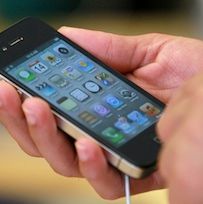
The amount of personal information we casually or unwittingly supply to technology companies keeps growing, and this time Facebook alone isn’t to blame (although of course they’re involved). Many app developers for iPhone and Android, including Foursquare, Yelp, Twitter, and Instagram, have been routinely taking all of the information from users’ address books and keeping the real names, e-mail addresses, and phone numbers on their servers without getting permission, even though it breaks Apple’s rules. They plan to at least ask in the future!
The New York Times Bits blog reports:
A number of developers and entrepreneurs have noted that Apple is responsible for approving these applications in the Apple iTunes Store. It says it doesn’t allow the practice. Apple says in its App store guidelines: “Apps that read or write data outside its designated container area will be rejected.” The company also says: “Apps cannot transmit data about a user without obtaining the user’s prior permission.”
Yet dozens of highly-popular iOS apps have made it past Apple’s app approval process while violating these guidelines.
Android gives app makers access to a phone owner’s call logs and other personal information. Google does, however, have tools built into the Android platform that ensure developers notify people before accessing this data.
Moving forward, developers say they’ll destroy the data and updates from companies like Path, and Twitter will make requests for permission more “explicit.” Plus, Twitter promises, “We send and store data securely. Address book information is encrypted when we send it from the mobile phones to our servers. The data is secured within Twitter in the same way that we secure other account information.”
While the volume of data we give up blindly — to Gmail, to Zuckerberg, and so on — is terrifying to dwell on, it seems our tolerance for such privacy breaches is only increasing. Even if handing over one’s address book becomes opt-in instead of automatic, how many people will read the terms of service and decide to shield themselves? And even if it doesn’t improve, how many people are actually going to uninstall the apps?





























